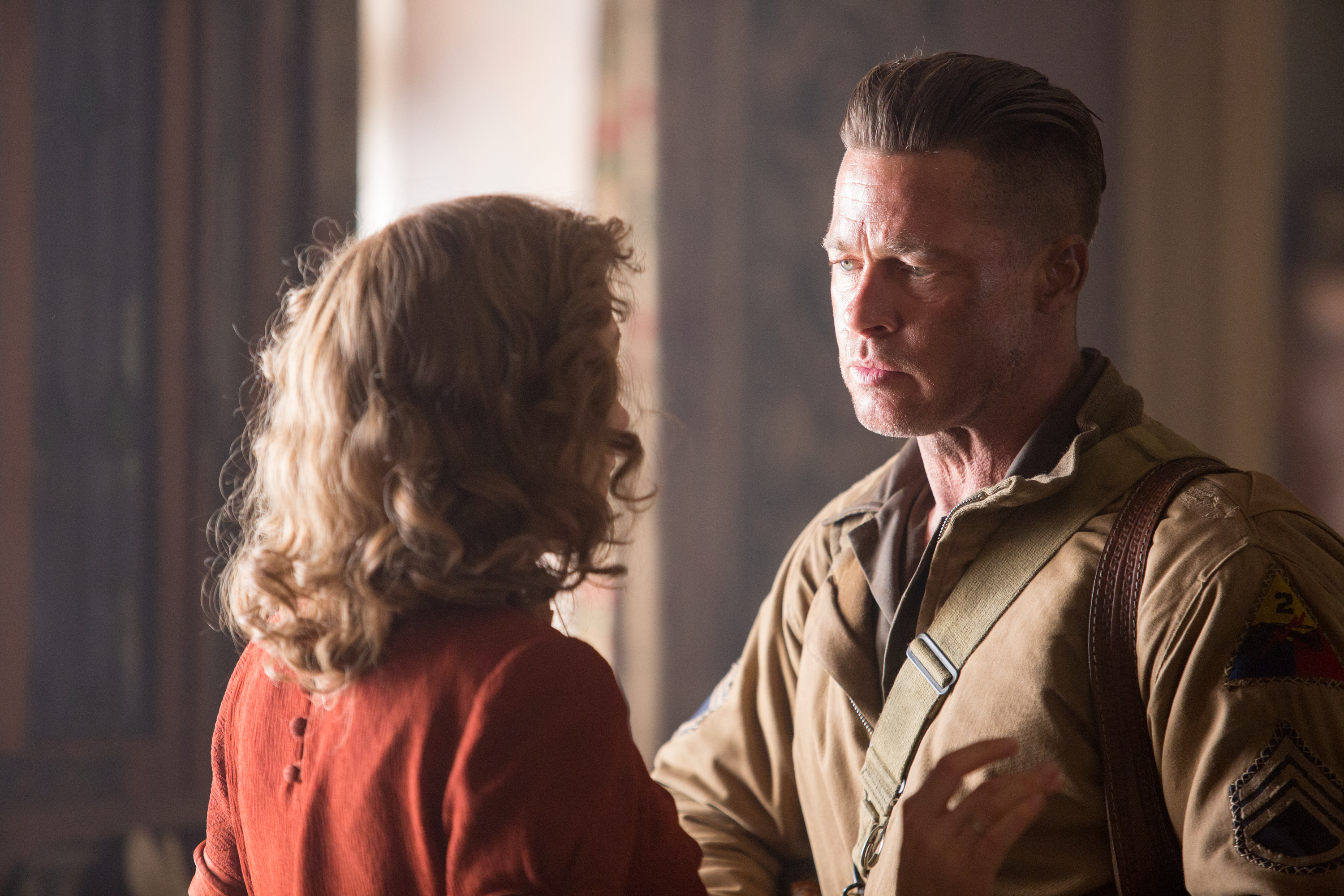Seven decades after World War II, and countless movies about it, I don’t know if audiences still have a taste for straightforward combat flicks like this. But you know who does? Brad Pitt. Now 50, he’s of the generation that sat on Grandpa’s knee to hear war tales, though with considerably less brutality than shown here. Fury (the nickname for a tank) is very much a throwback, respectful of genre and history, proudly old-fashioned in its veneration of teamwork and heroism. It’s in no way a surprising movie; the plot and ending are essentially what you expect; and that earns it a creaky kind of integrity. You can’t accuse Pitt and filmmaker David Ayer (Sabotage, End of Watch) of overpromising and not delivering. Nazis are killed by the score, and our side inevitably prevails.
Sgt. Don Collier (Pitt) gives no indication of his life before the war; nor is there any depth to his typical crew—Shia LaBeouf the pious Bible-thumper, Michael Pena the steadfast Mexican-American, Jon Bernthal the volatile hick—and their regional accents. Because every WWII movie demands one, the greenhorn here is Ellison (Logan Lerman), a typist recruited to man the machine gun where his predecessor perished in a bloody puddle. Speaking of typical: Collier’s moniker is “Wardaddy,” as he exerts loose but firm paternal authority over his men. (He even warns them against horseplay, a word I haven’t heard since the days of Johns Wayne and Ford.)
Fury covers 24 hours in April 1945, as Allied forces roll through Germany in the war’s endgame. Women and children are being forcibly conscripted to defend the Heimatland ; those who refuse, Collier explains, are hung from telephone poles by the SS—his most hated enemy. His most lethal enemies are the few remaining Tiger tanks, much better armored than our flimsy Shermans. (Later we’ll see them ripped open like sardine cans, evidence of the armored divisions’ extremely high casualty rate.) Though victory is, to us, preordained, the mood here is all mud and exhaustion. Collier and crew have been fighting for years, from North Africa to Europe, to the point where he says of his tank, “This is my home.” (German troops say the same thing during the finale—not that it saves them.)
In a vain appeal to female filmgoers, though this is hardly a date movie, Ayer creates an extended interlude at Fury’s midpoint as two German women host Collier and Ellison. It goes on too long, the sexual politics are dubious, and Collier’s other crewmen crash the affair—giving it an ugly aftertaste. Are these Yanks occupiers or liberators? Ayer himself is an ex-military man, having served on a submarine and written U-571. His Fury may be an exercise in broad-brush patriotism, yet this is the one scene that snags the waving flag. Collier seems to yearn for a calm, cultured oasis amid the chaos of war. Yet if evil has originated in Nazi Germany, violence is a virus he’s brought with him. Opens Fri., Oct. 17 at Ark Lodge and other theaters. Rated R. 133 minutes.
bmiller@seattleweekly.com








